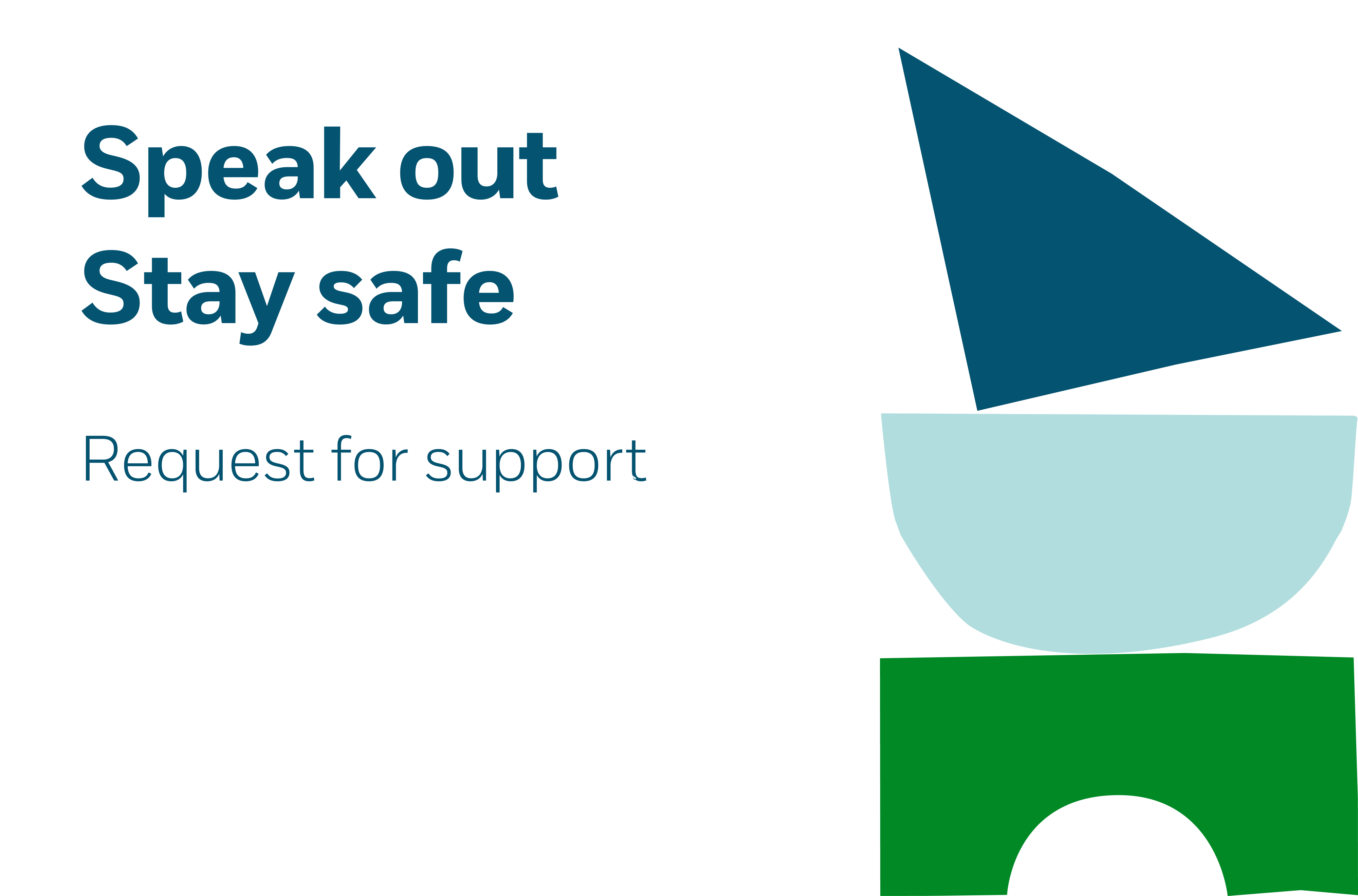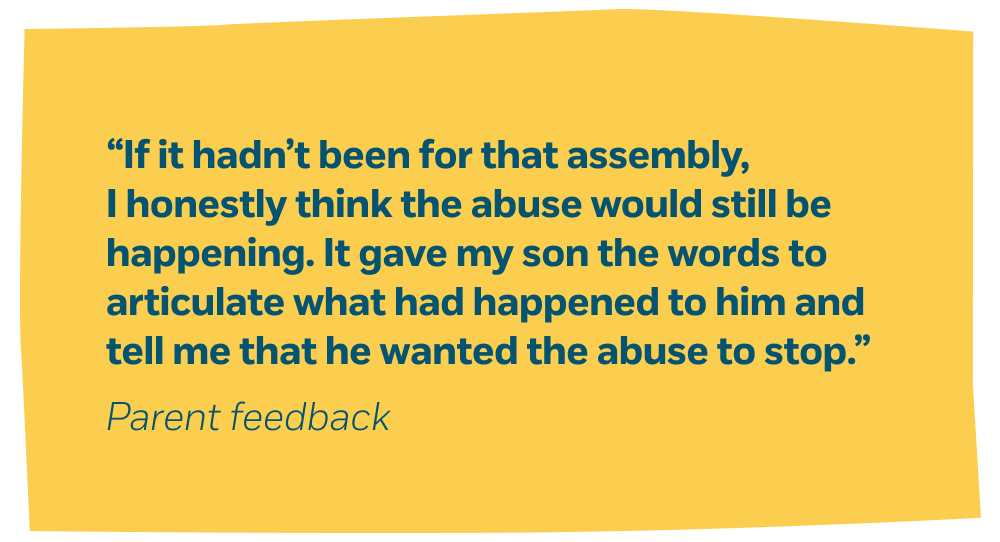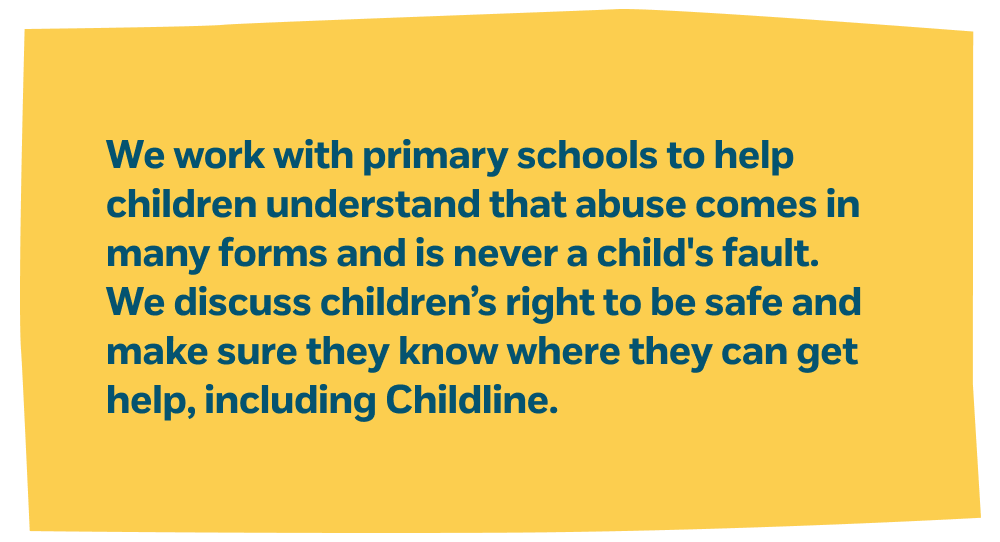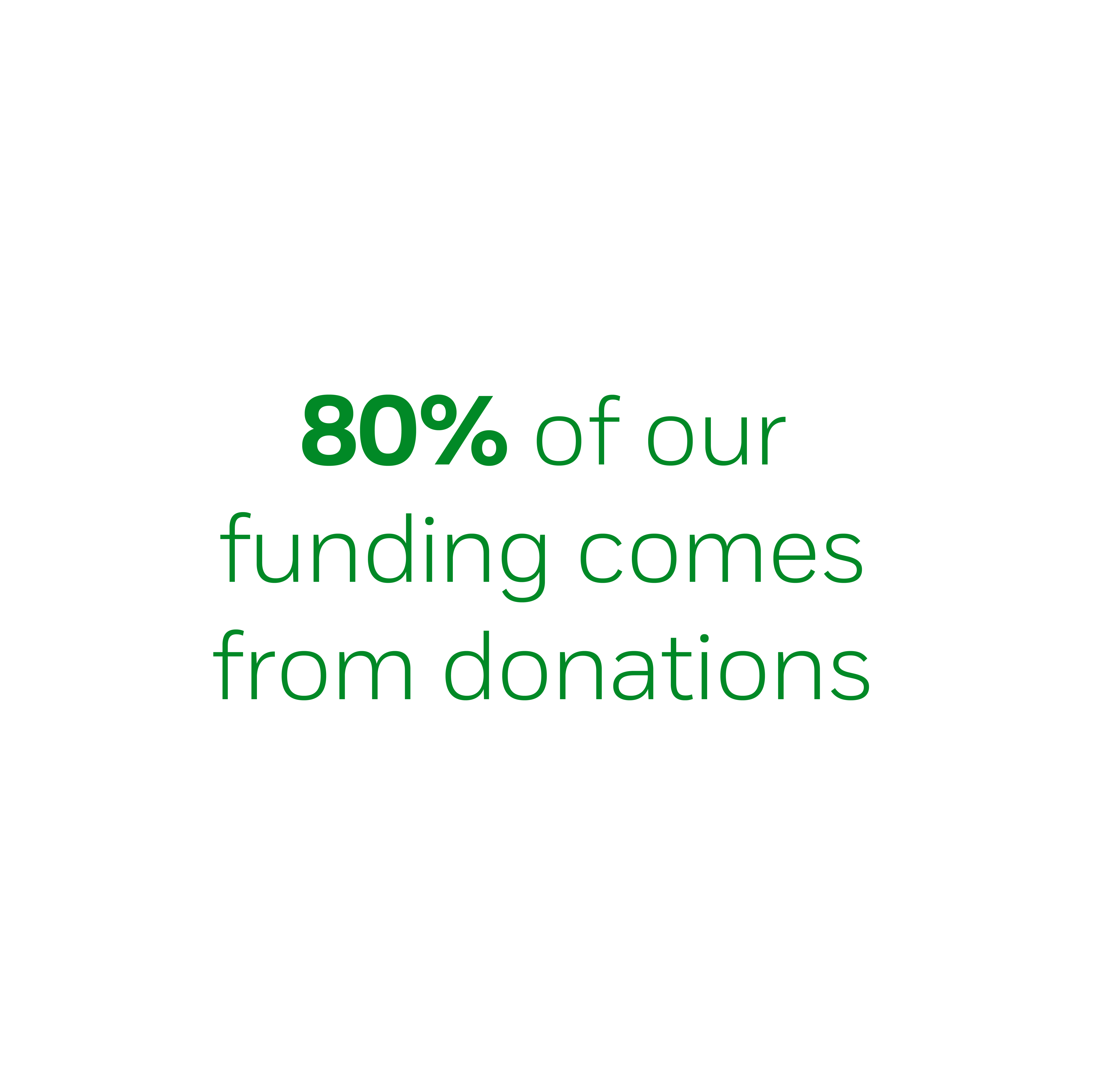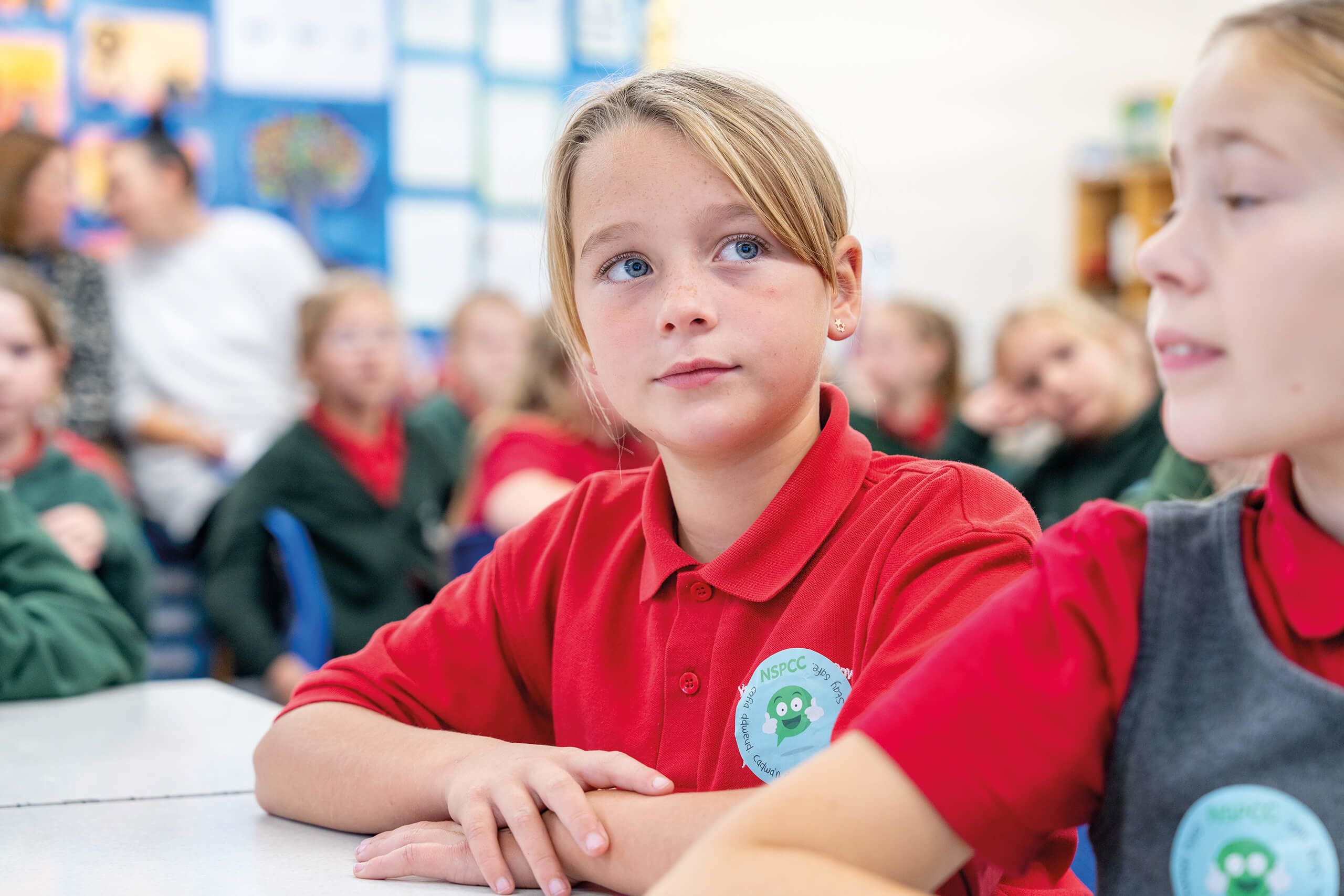
Speak out Stay safe
is our safeguarding programme for
5–11-year-olds.
When children are experiencing abuse, their world can feel lonely and isolated.
Many children won’t fully understand that what is happening to them is wrong. Those that do often carry the burden of shame and self-doubt. They may be scared of speaking out because of what their abuser has told them will happen if they do.
It might be a punch where no-one will see. Or a hand in a place that no-one should touch. Some will be hurt by words. Others by having to fend for themselves.
However the pain is caused, the damage is devastating.
The longer the abuse continues, the deeper its impact. Children may withdraw from their friends and family, or start lashing out at those around them. They might find it harder to concentrate on their schoolwork. Their health will begin to worsen. Many will still be struggling with their abuse as adults.
It’s a path no child should be forced to walk – but this terrible journey can be prevented. With the support of people like you, we can help keep children safe from abuse and begin leading them towards a happier, healthier childhood.
Our goal is to give teachers and schools the tools they need to help children feel safe, listened to and supported.
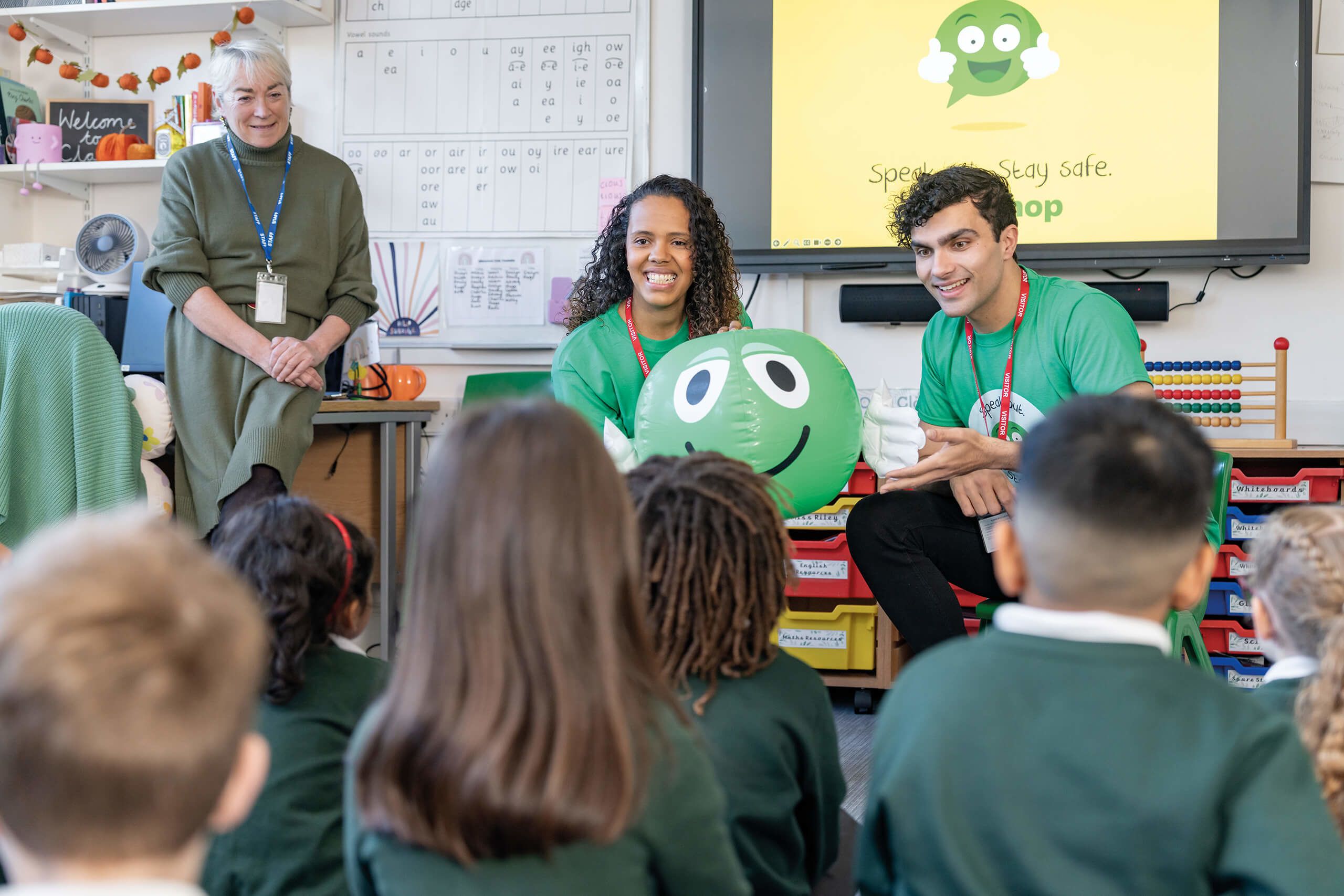
Transforming children’s futures
Half a million children a year suffer abuse or neglect in the UK. That's two in the average primary school class. By the age of 18, this has risen to seven in a classroom.
Schools have a pivotal role in the protection of children. Teachers are in a prime position to spot concerns and are often the safe adults that children can turn to when something is wrong. That's why the NSPCC is working closely with schools through Speak out Stay safe.
Our long history of protecting children and nationally-recognised brand means that professionals trust our expertise on child abuse.
We’ve successfully built on this trust to develop a schools service that has now reached 90% of the UK’s primary schools.
We support children to gain the understanding they need to protect themselves from abuse – all free of cost to an education sector facing spiralling overheads and a lack of funding.
The programme complements school safeguarding plans and fills a gap in relationship education, providing an accessible yet impactful way for teachers to broach sensitive subjects in an age appropriate way. The effectiveness of Speak out Stay safe has been independently evaluated and verified.


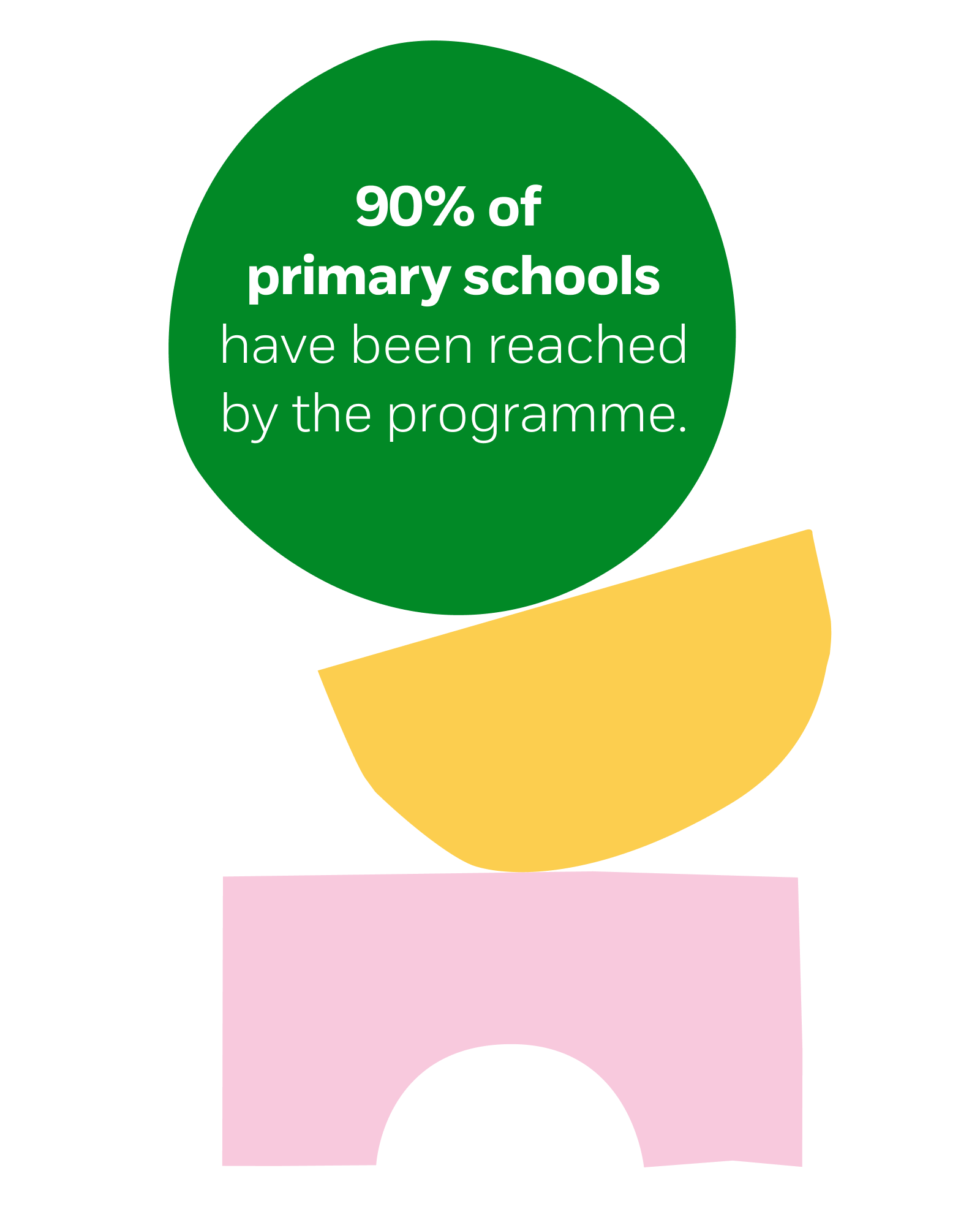
Transforming children’s futures
Half a million children a year suffer abuse or neglect in the UK. That's two in the average primary school class. By the age of 18, this has risen to seven in a classroom.
Schools have a pivotal role in the protection of children. Teachers are in a prime position to spot concerns and are often the safe adults that children can turn to when something is wrong. That's why the NSPCC is working closely with schools through Speak out Stay safe.
Our long history of protecting children and nationally-recognised brand means that professionals trust our expertise on child abuse.
We’ve successfully built on this trust to develop a schools service that has now reached 90% of the UK’s primary schools.
We support children to gain the understanding they need to protect themselves from abuse – all free of cost to an education sector facing spiralling overheads and a lack of funding.
The programme complements school safeguarding plans and fills a gap in relationship education, providing an accessible yet impactful way for teachers to broach sensitive subjects in an age appropriate way. The effectiveness of Speak out Stay safe has been independently evaluated and verified.
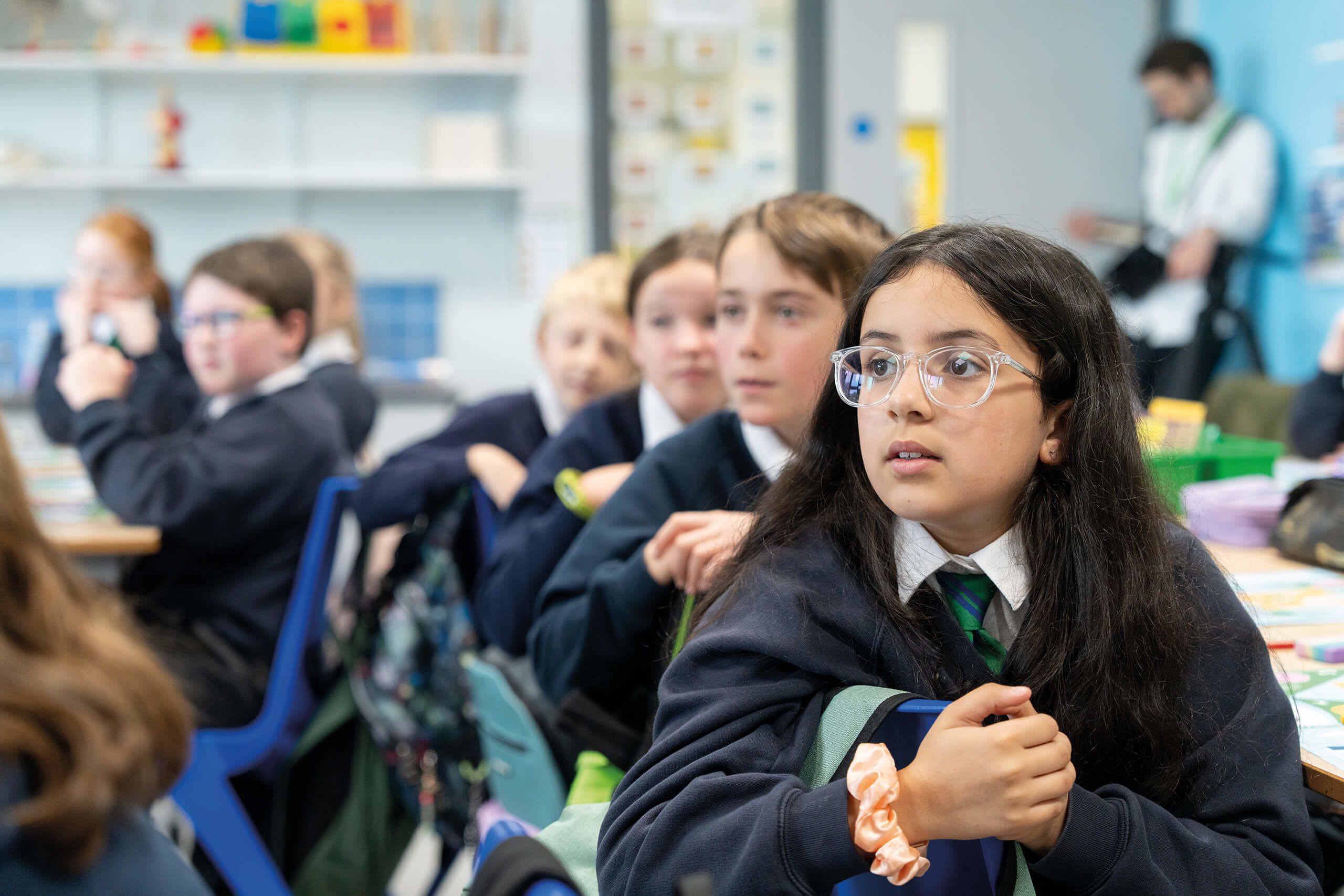
Speak out Stay safe in numbers
90%
of primary schools have been reached by the programme.
Almost 1.4 million children in 5,600 schools were reached in 2023/24.
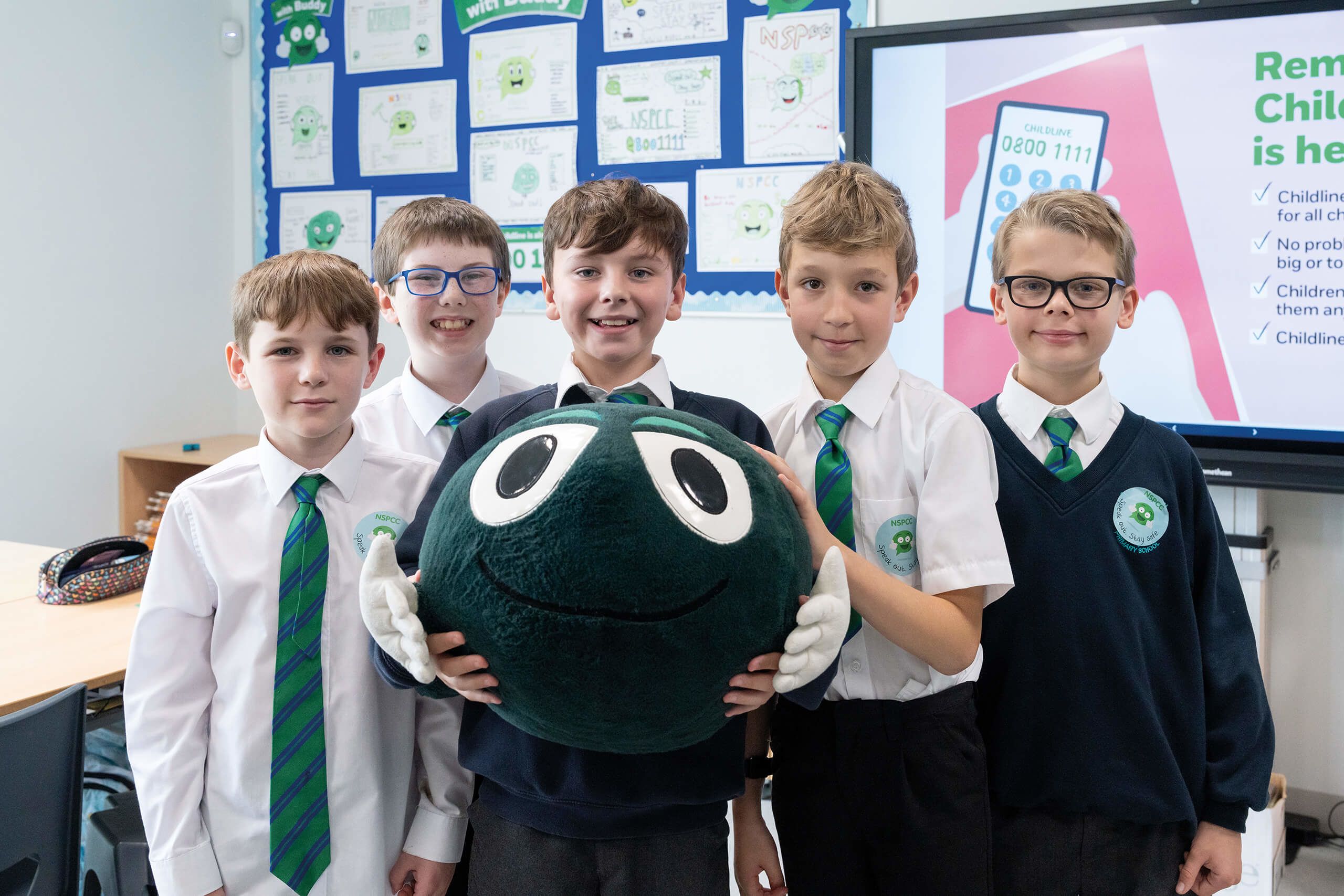
Knowledge is power
The programme consists of:
Virtual assemblies for 5–7-year-olds and 7–11-year-olds
Our online assemblies are interactive, memorable and child-friendly. They are led by teachers with the help of Buddy the speech bubble, our mascot designed to encourage children to speak out about abuse.
Follow on lesson plans, activities and resources
A set of engaging materials for teachers that help children retain key messages about abuse and neglect through repetition and emphasis.
Face-to-face workshops with NSPCC volunteers
Our highly trained network of volunteers, led by local schools coordinators, visit schools to again reinforce what children have learned, strengthen schools' safeguarding processes and signpost families to the range of support available in their community.
Across the programme, we help children to learn about:
- Speaking out.
- Children's rights.
- Definitions of abuse.
- Carrying worries.
- Safe adults, such as Childline.
To make sure the most vulnerable children are protected, there is also an adapted six-week programme for children with special educational needs and disabilities (SEND) and additional needs (ASN/ALN).
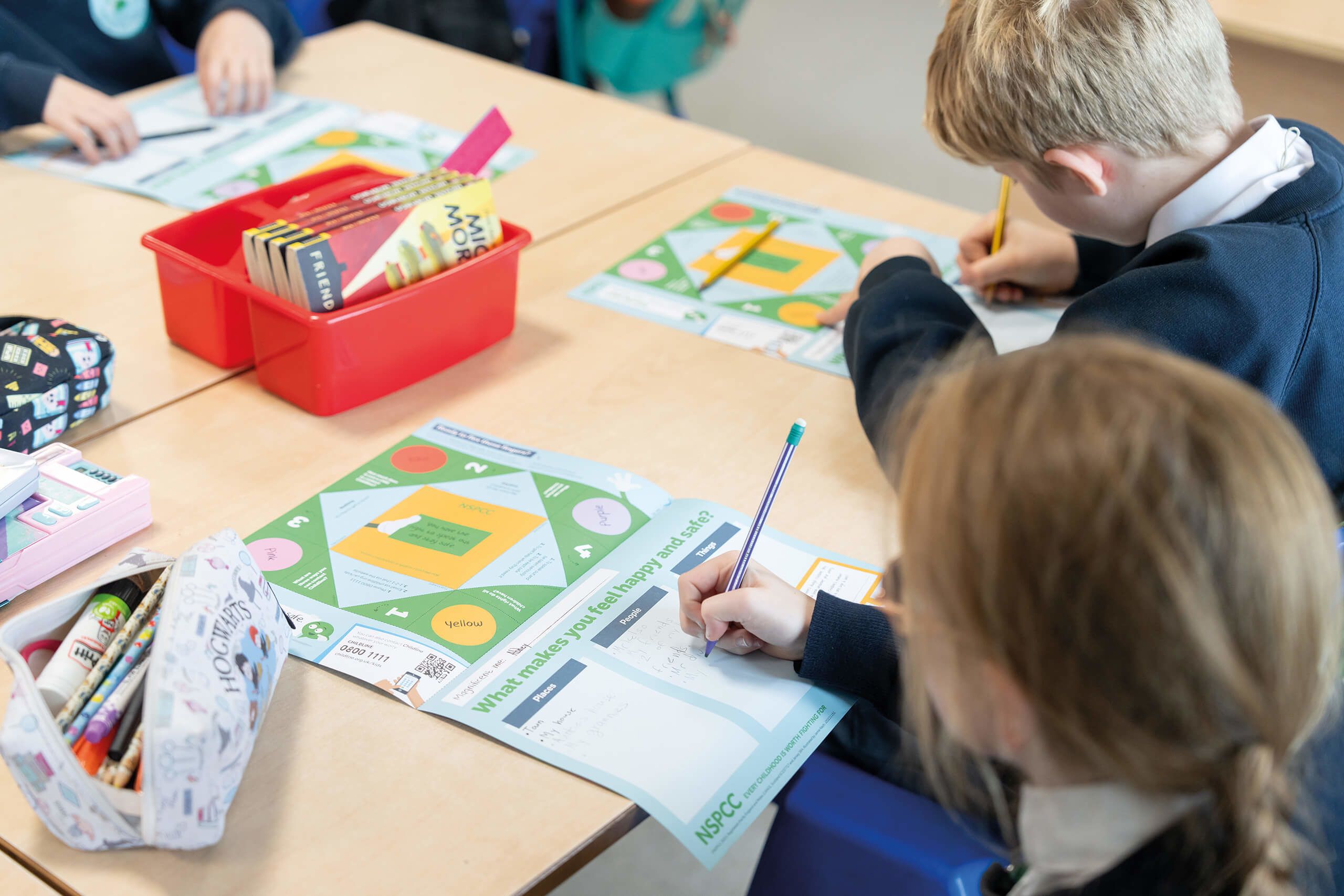
Evolving the model
We built on the results of an independent evaluation to move to our current model of virtual assemblies and lesson plans. These are followed by face-to-face workshops led by our highly trained volunteers. We continue to monitor the service’s performance regularly.
One key change to the programme prompted by our evaluations was the creation of a new schools coordinator role. Around 70 coordinators are now in post, giving each school a named contact in their local area responsible for the booking and delivery of Speak out Stay safe, and managing our volunteers.
Will you help schools prevent child abuse?
It can take years of therapeutic care and support for a child to come to terms with the effects of abuse.
We are determined to prevent child abuse before it occurs, and our schools service is a vital part of achieving that. We reach hundreds of thousands of children each year and empower safe adults who see them every day to notice and act when something is wrong.
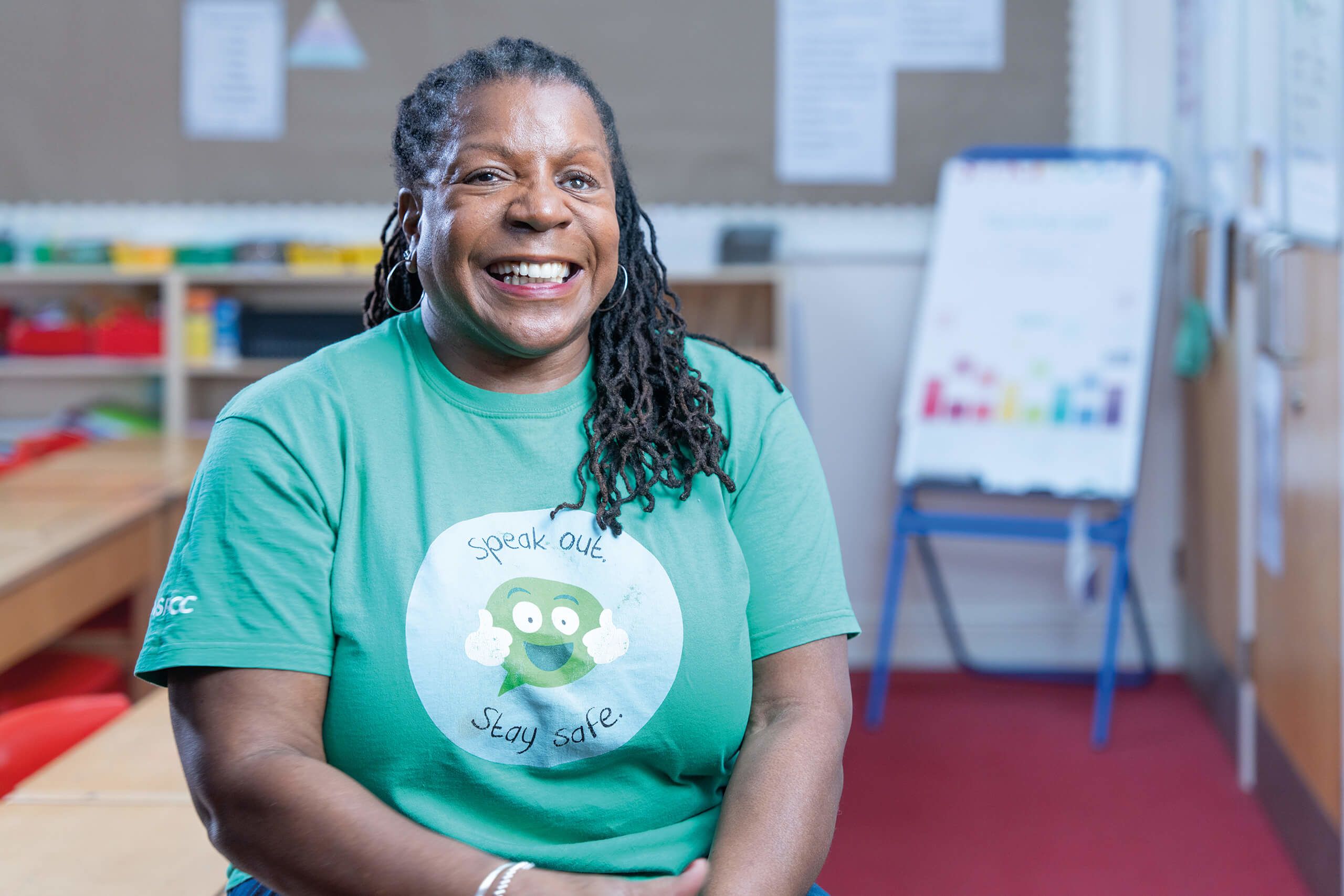
Your support for Speak out Stay safe can be powerful.
You can help us deliver the programme to schools we haven’t yet reached in the UK’s farthest corners. Or revisit schools with vital safeguarding messaging for new year groups.
You could help us find and train more passionate volunteers to help keep children safe. Or you might choose to help us adapt the programme in communities with specific, complex needs. However you may choose to support this service, you’ll be helping protect a generation of children from the devastating impact of abuse in all its forms.
